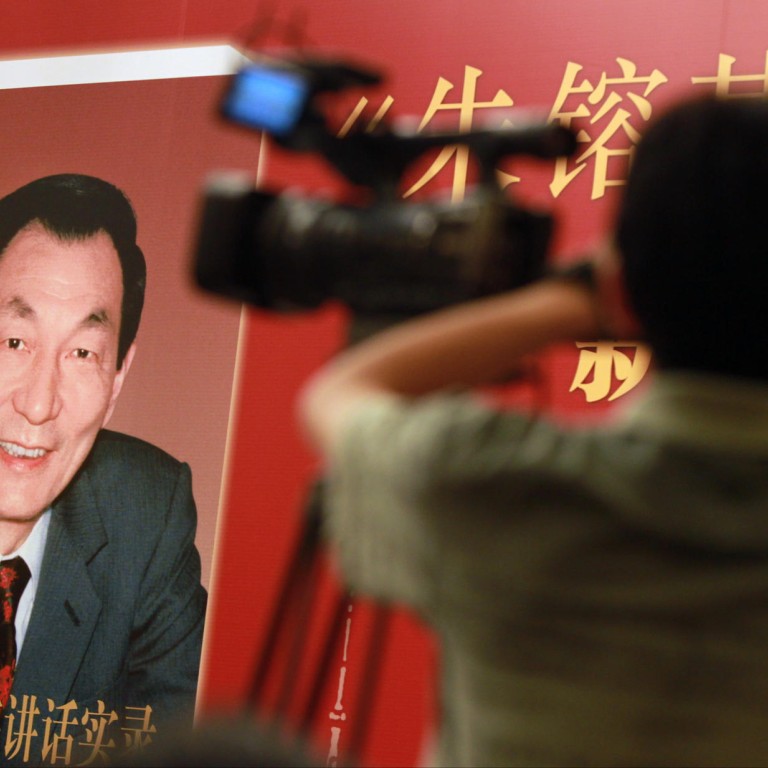
Chief executive CY Leung forged early links with ex-premier Zhu Rongji
Pair discussed land ownership policies and housing in 1988 and 1990 meetings in Shanghai
A new book written by former premier Zhu Rongji offers an insight into Chief Executive Leung Chun-ying's close ties on the mainland that go back to the 1980s.
Leung is the only Hong Kong politician highlighted in the book, which contains 106 selected speeches, letters and commentaries by Zhu during his time as Shanghai mayor between 1987 and 1991.
He started to sow the seeds from the early '80s. He was determined to gain trust from Beijing, so he was very bold in terms of giving advice
Zhu reveals two meetings in 1988 and 1990 in which he sought advice from Leung on two core reform issues that Shanghai was facing at the time - the land ownership policy and housing.
At the 1988 meeting Leung, then a 34-year-old surveyor at British firm Jones Lang Wootton, gave Zhu detailed analysis and advice on land ownership. Zhu then asked him to make a presentation on land reform to other Shanghai officials.
In 1990 - a year after the June 4 crackdown in Tiananmen Square - Zhu briefed Leung on the latest developments in Shanghai and again asked him for advice, this time on housing.
One of Leung's significant suggestions that was accepted by the Shanghai government was to sell land by international open tender.
Zhu also touches on Shanghai-Hong Kong relations.
"[Shanghai] can hardly substitute Hong Kong as the [regional] financial, information and trading centre … but we surpass Hong Kong in industrial and high-end technologies," said Zhu. "Shanghai and Hong Kong can complement each other and enjoy mutual prosperity."
The discussions between Zhu and Leung - published for the first time - show the level of trust the mainland leader apparently had in the man who would later become Hong Kong's chief executive.
While it is normal for a mainland leader to ask a visiting non-local professional for policy advice, the questions put to Leung were specific and detailed.
Veteran China watcher Johnny Lau Yui-siu said the meetings suggested Leung's ambition to win support from Beijing leaders was planned well in advance.
"He started to sow the seeds from the early '80s. He was determined to gain trust from Beijing, so he was very bold in terms of giving advice," Lau said.
Lau said the accounts of Leung in the book should not be read as an endorsement from Beijing for the embattled chief executive. "The editing work started two years ago, so … the articles cannot be interpreted as an attempt to influence Hong Kong's politics."
Nor did it mean Leung had Beijing's blessing back in the 80s, he said. "The central government was fighting for talent with the British government, but not many were willing to lean towards Beijing. Leung was one of them, so he was easily accepted."
